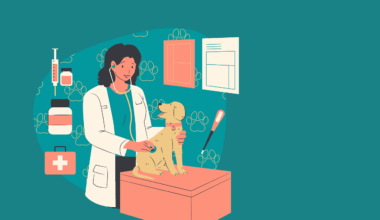Socializing Adult Dogs: Can Classes Help?
Socialization is crucial for adult dogs, promoting positive interactions and behaviors. Enrolling in socialization classes offers numerous benefits that many pet owners may not realize. These classes, led by trained professionals, focus on exposing dogs to various environments, situations, and other dogs in a controlled manner. This exposure can help alleviate anxiety, aggression, and fear in adult dogs. Additionally, attending socialization classes provides owners with the tools to implement effective training techniques at home, reinforcing what is learned during sessions. Dogs that participate in structured socialization often exhibit improved confidence and sociability, leading to better relationships with both humans and other pets. Given the importance of learning the right social skills, dog owners should consider enrolling their adult dogs in such classes. Not only do these classes enhance a dog’s behavior, but they also create opportunities for owners to connect with fellow dog lovers. Understanding the underlying principles of dog behavior can lead to a more fulfilling companionship. Ultimately, socialization classes can be a fun and beneficial experience for both dogs and their owners.
Effective communication between dogs is essential for their interactions. Through socialization classes, adult dogs can learn to understand canine body language and vocalizations better. This understanding decreases misunderstandings and potentially aggressive encounters. For instance, observing how dogs greet one another, interpret body language, and respond to various stimuli is valuable. In a class setting, dogs can engage with diverse breeds and sizes, allowing them to adapt their behaviors accordingly. Watching other dogs can provide crucial lessons for an adult dog, reinforcing appropriate play styles and interactions. With positive reinforcement techniques taught in these classes, dogs are rewarded for good behavior, enhancing the likelihood of these behaviors being repeated. Owners are taught to recognize signs of stress or discomfort in their pets, enabling proactive management of situations. Creating a safe environment where adult dogs can explore social situations reduces fearfulness of unfamiliar experiences. Furthermore, the supportive community within these classes creates opportunities for socializing among owners as well. As they learn together, owners can share insights and tips, forging bonds that promote ongoing dog socialization beyond the classroom.
The Role of Professional Trainers
Professional trainers play a vital role in dog socialization classes, providing expertise and guidance for both dogs and their owners. These trainers possess extensive knowledge about canine behavior and have experience addressing a multitude of issues. Their structured approach ensures that both dog and owner participate in scenarios that contribute positively to the learning process. Furthermore, trainers can tailor lessons based on individual dog needs, accommodating various temperaments and experiences. For instance, some dogs require gradual exposure to certain triggers, while others may thrive in high-energy social settings. Trainers offer valuable feedback, enabling owners to recognize what techniques are working and what adjustments are necessary. This immediate feedback loop facilitates rapid progress in social skills and behavior modification. Additionally, trainers often incorporate various games and activities designed to engage dogs mentally while fostering social bonds. The environment is controlled, which significantly reduces potential negative interactions or fears from arising. The insights provided by experienced trainers contribute greatly to successful outcomes in adult dog socialization, increasing the likelihood of lifelong behavioral improvement.
Classes create opportunities for ongoing practice and reinforcement of newly learned skills. Socialization is not a one-time event but a continuous process. Regularly attending classes allows adult dogs to maintain their social skills while continuing to improve on what they have learned. This repetitive practice establishes a strong foundation for positive interactions, ultimately contributing to an adult dog’s confidence in various environments. Moreover, classes often focus on real-world scenarios, helping dogs acclimate to different settings, making trips to the park or vet less stressful over time. Socialization classes can include distractions such as noise and varied visual stimuli, which can help dogs learn to manage their reactions effectively. Beyond skill-building, the relationships formed within these classes can be invaluable. Owners can establish a network for future playdates, encouraging consistent socialization opportunities outside structured learning. This involvement not only benefits the dogs but also fosters a sense of community among dog owners. Overall, participating in ongoing social classes ensures that adult dogs retain essential social skills while continuing to flourish.
Benefits Beyond Socialization
Deciding to enroll an adult dog in socialization classes yields numerous benefits that extend beyond simply teaching social skills. These classes promote mental stimulation, as engaging in new activities, meeting other dogs, and exploring different environments keeps a dog’s mind sharp. Cognitive engagement is crucial for reducing boredom and undesirable behaviors associated with it. Additionally, adult dogs often struggle with behavioral issues stemming from a lack of socialization early in their lives. Classes serve as an opportunity for reconditioning and behavior modification, helping these dogs adapt to their environment more effectively. Engaging with various stimuli allows them to learn appropriate responses, decreasing fear-based reactions. Classes also assist in building trust between the owner and dog. This improved bond can lead to better cooperation during training sessions outside the classroom setting. A positive trainer can boost an owner’s confidence, helping them understand their dog’s behaviors and quirks better, leading to a more harmonious living situation. The overall improvement in behavior and communication fosters a greater quality of life for both dogs and their owners.
Socialization classes are not solely designed for problematic behaviors or social anxiety; they are beneficial for all adult dogs. Even well-adjusted animals can enhance their social skills and learn new commands. Engaging in structured activities adds diversity to a dog’s routine, which is often necessary for their happiness. Additionally, classes encourage physical exercise, important for maintaining a healthy weight and promoting overall well-being. The exercise provided during class sessions keeps dogs active and engaged in a safe setting. Moreover, combining physical activity with social interaction results in happier, more well-rounded dogs. This combination encourages harmonious relationships with both humans and other animals. Attending classes regularly also helps dogs become more adaptable, as they face various challenges and distractions during training. Thus, they learn how to maintain composure amid chaos, fostering resilience that can be applied to everyday situations. The long-term benefits from participating in these classes create well-integrated dogs. Pet owners stand to gain significant insight into their dog’s development, resulting in enriched lives for both pet and owner.
Conclusion: The Importance of Ongoing Socialization
In conclusion, socializing adult dogs through structured classes is fundamentally important for their well-being. The benefits are clear: improved behavior, enhanced skills, and the development of confidence are just a few advantages noticed by pet owners worldwide. Socialization is not merely an activity but an ongoing necessity that contributes to the overall health of adult dogs. Even those with previous experiences can significantly benefit from renewed social engagement. By attending classes, dogs can explore new environments while learning how to interact appropriately with others. Such experiences are key to fostering well-behaved pets that thrive in packed public areas or around new acquaintances. Furthermore, engaging with professional trainers enables owners to implement effective techniques to reinforce social skills consistently at home. The friendships formed among owners can support continued social experiences for their dogs, benefitting everyone involved. Ultimately, prioritizing socialization promotes happier and healthier lives for both our dogs and us as pet owners. Considering the inherent benefits associated with socialization classes, it is wise to make this investment in our beloved canine companions.
For more information about dog socialization classes and programs, you can visit reputed sites like American Kennel Club. Knowledge is power, and as dog owners, we owe it to our pets to ensure that they lead enriched, fulfilling lives!


